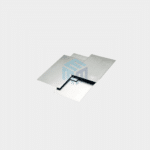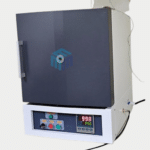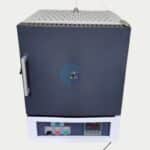What is Quartz Glass
Quartz glass, also known as fused quartz, silica glass, or Quartz Glass Tubing, is a type of glass made from pure silica (SiO2). It is produced by melting high-purity, natural quartz or synthetic silica sand at very high temperatures and then cooling it rapidly to form a solid glass.
Quartz glass has several unique properties that make it valuable in various industrial and scientific applications. It has excellent optical clarity, high thermal resistance, low thermal expansion, and exceptional chemical purity. These properties make it suitable for use in optics, semiconductor manufacturing, laboratory equipment, Quartz Glass Tubing, and other high-temperature and corrosive environments.
Properties of Quartz Glass?
- High Temperature Resistance: Quartz glass boasts a melting point slightly above 1700°C, enabling it to withstand temperatures of approximately 1100°C effortlessly.
- Acid Corrosion Resistance: With the exception of hydrofluoric acid and hot phosphoric acid, quartz glass remains inert to acids. This makes it a superior choice compared to materials like stainless steel and ceramic.
- Exceptional Thermal Stability: Quartz glass remains undamaged by abrupt temperature changes. Even when subjected to high temperatures, it remains intact when placed in room-temperature water.
- Superior Light Transmission: Quartz glass allows over 90% of the visible light spectrum, from ultraviolet to infrared, to pass through, demonstrating remarkable light transmission capabilities.
- Outstanding Electrical Insulation: Quartz glass offers electrical insulation about 10,000 times higher than regular glass, making it an excellent choice for applications requiring electrical insulation.
- Chemical Inertness: Quartz glass is highly resistant to chemical corrosion and does not react with most acids, bases, or other chemicals. This property makes it suitable for use in harsh chemical environments, such as in laboratory equipment, chemical processing, and semiconductor fabrication.
- Electrical Insulation: Quartz glass is an excellent electrical insulator, making it useful for applications requiring electrical insulation, such as in electrical components and high-voltage devices.
What are the applications of Quartz Glass?
Laboratories handle chemicals that are reactive, flammable, and subject to extreme temperatures. Therefore, the equipment and apparatus must be crafted from materials capable of withstanding harsh conditions without compromising the integrity of the chemical compounds, ensuring the most accurate results possible. Quartz glass possesses physical and chemical attributes that render it highly suitable for laboratory devices. It finds extensive use in optical-based products such as microscopes, telescopes, lasers, electronic sensors, and various scientific instruments. Much of laboratory experimentation involves practical testing of elements, such as ashing chemical samples, for which crucibles and tubes made of quartz glass are indispensable.
Quartz crucibles, bowl-shaped vessels typically equipped with lids, serve to contain and heat substances. Their properties make them ideal for laboratory tasks like ashing chemical samples. Quartz tubes, hollow cylindrical devices, find application in level gauges, x-ray tubes, vacuum tubes, transfer carriers, thermocouple tubes, CVD, and diffusion processes. Quartz crucibles and tubes offer several advantages for laboratory devices:
- They withstand temperatures up to 1100°C. Additional benefits include inertness to many chemical substances, excellent electrical insulation, low thermal expansion, high light transmission, and consistent quality.
- Quartz crucibles come in various shapes and sizes, with options for lids, including cylindrical, tray, high form, wide form, bitumen, rose, gooch, and porous bottom designs. Similarly, quartz tubes are available in customized sizes to meet user requirements.
Although quartz glass is readily available due to the abundance of the mineral, it is essential to conduct thorough research on the seller and the quality of their products before procurement. This ensures the effective and trouble-free application of quartz glass for the intended laboratory tasks.
For any more information, please feel free to contact us at marketing@mkubeenterprise.co.in M-KUBE TECHNICAL SUPPORT WILL BE HAPPY TO ASSIST, AS MUCH AS POSSIBLE.






